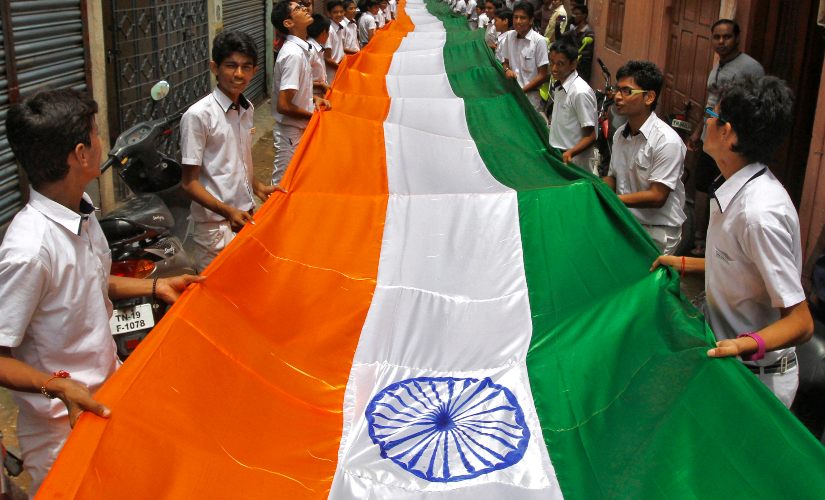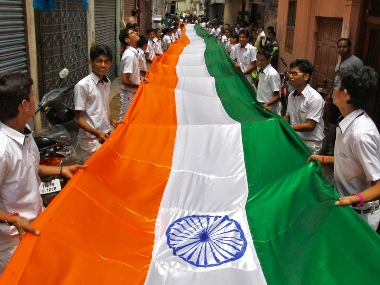This essay is part of Firstpost’s ‘India and the Indian’ series, which examines the renewed idea of nationalism in vogue today, and what it means. Read more from this series . *** The question that is often asked following the Bharatiya Janata Party’s stunning and spectacular victory in the 2019 General Elections is “Does BJP 303 and Modi 2.0 signify a new nationalism or altered idea of India?” The answer to such a categorical, not to mention complex, question is hard to provide in a simple “yes” or “no.” No doubt, notions of a new kind of nationalism or idea of India are very much in the air. Who can deny that? But they are far from what they appear to be when taken at face value. For instance, the BJP’s second crossing of the halfway mark of 272 on its own in the Lok Sabha definitely signifies the end of the Nehruvian socialist, secularist consensus that prevailed almost as a state religion in the country, for some six decades of independent India. National Democratic Alliance 1.0 and 2.0, (2009-2004) — the Atal Bihari Vajpayee led coalition that lasted approximately thirteen months and four and a half years respectively — offered a tentative substitution of soft Hindutva in place of the by-then already enfeebled Nehruvian paradigm. However, this face off resulted in somewhat of a stalemate rather than a decisive worsting of the old by the new. Two terms of the United Progressive Alliance, with prime minister Manmohan Singh at the helm of affairs, succeeded the NDA from 2004-2014. Narendra Modi’s counter was not Vajpayee’s soft Hindutva. Instead, he offered an assertive, although not aggressive, Hindu cultural nationalism coupled with good governance and a strong developmental agenda. Prior to Modi’s second victory, RSS Sarsanghachalak (Chief) Mohan Bhagwat offered his vision of a new India in a three-lecture series in September 2018 at Vigyan Bhawan, New Delhi. I have called this new vision, “inclusive Hindutva". It was this combination of developmental nationalism and inclusive Hindutva which proved to be the winning ideology that swept Modi and the BJP to power a second time. Now that Narendra Modi and the BJP have won so convincingly, what is to be done? Should minority appeasement and reverse discrimination, the cornerstones of the Congress consensus, be replaced by triumphant and belligerent majoritarianism? Not at all. Rather all communities and stakeholders ought to be treated fairly and equally. The State must not dole out favours or special inducements to any group with a view to securing their support. What then of the demands of the majority, who voted Modi back to power? Again, the answer has to be in the negative. The government should treat all stakeholders alike; the majority, of course, is bound to benefit by its overwhelming strength in numbers. [caption id=“attachment_6848021” align=“alignnone” width=“825”]  Representational image. Reuters[/caption] That is how popular, though not necessarily populist, democracies operate. To offer special favors or rewards to the majority would not only prove unnecessary but possibly jeopardise the stability of a diverse and plural society such as India. It might even lead to oppression of or discrimination against minorities and weaker sections of society. Modi 2.0, deeply conscious of this danger, has resisted kowtowing to majoritarian demands as compensation for votes or support received at the hustings. Instead, it has tried to shift the focus to development and prosperity. Its attempts to win the trust of all sections of society is indicated in adding to its catch phrase and popular slogan “sabka saath sabka vikas”, the additional component of trust in “sabka vishwas.” In addition, the government has already rolled out benefits aimed at specific sections of society such as minority girls’ scholarships covering up to 50 percent of the eligible population. Should we then conclude that the more things change the more they remain the same? Not quite. The new nationalism of the Modi era, however much its critics would like to characterise it as a quasi-theocratic and dangerous form of Hindu nationalism, is actually quite far from trying to foist the idea of a Hindu Rashtra upon an uncompromisingly and explicitly defined secular by the Constitution. Instead inclusive Hindutva, despite some rather ugly and unruly fringe elements, is what is on offer. Of course, the deluded and distorting “Lutyens media” refuses to see this. If they did care to peer beyond the smoke screen of their own projected fears and hatred, they would see a rising tide of a young and aspirational India fueled by billions of hopeful hearts and hard-working pairs of hands. This India does not wish to be identified merely by caste, creed, community, region, language, or even religion. They want to be first and foremost plain Indians, each of whom has a right to own the new idea of India and reap the fruits of prosperity and development. This unprecedented shift from identitarian to aspirational politics is the great transformation that we are in the midst of. What Modi has offered, therefore, is not really a new ideology, religious or otherwise, nor a new polity suggested by his earlier slogan, “less government, more governance.” Actually the size and reach of the State have increased as never before. Modi, though far from being a socialist, is definitely a statist. His vision of a new India is still predicated upon the government as the major if not the sole change agent. What is different is his promise and formula to transform India. Given these facts, we must recognise that the new idea of India is not based on Hindu majoritarianism combined with an assertive Hindutva. Rather the new nationalism envisages the possibility of a renovated India driven by a clean, efficient and accountable government. No doubt this implies cultural, religious and civilisational self-respect as opposed to self-loathing and self-denigration. In that sense, it is the continuation, even fulfilment, but not rejection or destruction of the older idea of India as a sovereign, secular, democratic republic — with “inclusive Hindutva” and developmental nationalism as its overarching ideology.
The new nationalism of the Modi era is actually quite far from trying to foist the idea of a Hindu Rashtra upon an uncompromisingly and explicitly defined secular by the Constitution.
Advertisement
End of Article


)

)
)
)
)
)
)
)
)



